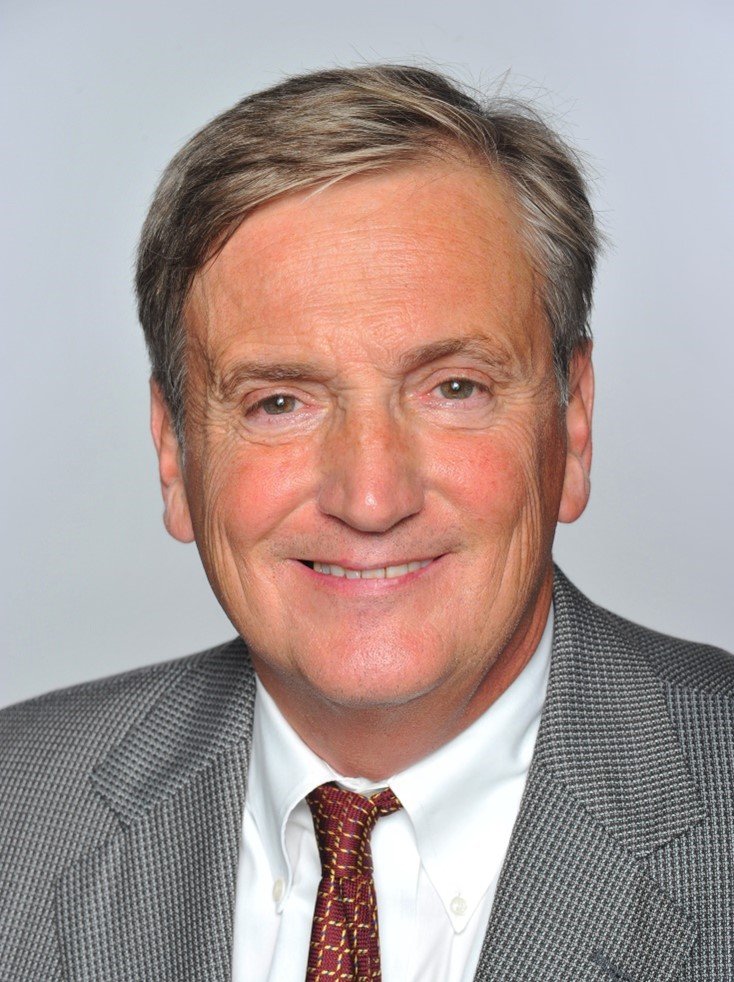Making Medicines Work Better for You
OneFul Health can combine many of your medicines into a single one.
ONE mission.
OneFul seeks to improve the quality of life for millions of patients with affordable personalized medicine that are much easier to take. Using precision medicine science and made with robotic accuracy, we deliver multiple drugs combined for One Person, as prescribed by One Doctor from our modern OneFul Pharmacies.
Our much-anticipated investment opportunity is now officially open! Don't miss out on this chance to be a part of our journey.
Click the button below to access the investment page and explore the opportunity that awaits you.
Are you an investor?
Are you an investor?
OneFul Overview
OneFul Health is an e-pharmacy for personalized medicine. Using custom formulation software and patented pharmacy technology, we deliver multi-drug prescriptions made with robotic automation combined as a single pill or gel to improve adherence and reduce adverse effects.
The Problem
Remembering and confusion about multiple medications can be difficult when managing a chronic illness with a lifelong prescription regimen of 4+ daily medications.
This lack of adherence leads to an estimated 100,000 preventable deaths each year.
OneFul Solutions
OneFul Health offers personalized prescription therapies with physician-approved formulations that deliver all of your prescribed medicines in one easy-to-remember polypill or easy-to-swallow gel packet.
How the PolyPill Works
The patient completes a Q&A about their health status and current prescriptions.
Their doctor or our specialist telemedicine physicians reviews the patient’s responses, and if suitable transmit a prescription to OneFul.
Eligible patients’ medications are formulated into a combination prescription.
Prescriptions are checked and released by our PharmD team, made with patented automation, then delivered directly to the patient typically within 24 hrs after receipt.
Videos
News
OneFul is a 2023 Most Fundable Winner
How to Get Heart Patients to Take Their Pills? Give Them Just One. - The New York Times
Combination 'polypill' lowers the risk of major cardiovascular events, study finds - CNN
Polypills for CVD Prevention - Research Institute of Canada
Combination 'polypill' cuts heart disease deaths, study finds – NBC News
‘Polypill’ Reduces Risk of Repeat Heart Attacks | Everyday Health
'Polypill' reduces cardiovascular mortality by 33% in patients treated after a heart attack Medical Express
What Is a 'Polypill'? How a Single-Dose Treatment Can Help Lower the Risk of Major Cardiovascular Events - Health.com
This Daily Pill Cut Heart Attacks by Half. Why Isn’t Everyone Getting It? New York Times
The Cost of Not Taking Your Medicine
Compounding Pharmacies Market reflects a CAGR of around 8.3% over the forecast period (2021-2031)

Science
The Polypill: From Concept and Evidence to Implementation
Polypill Strategy in Secondary Cardiovascular Prevention – New England Journal of Medicine
The Polypill Comes of Age – Science Based Medicine
Single pill containing quadruple combination of quarter doses of blood pressure medicines versus standard dose – The Lancet
One Pill for Them All: Polypill Therapy for the Prevention of Cardiovascular Disease – American College of Cardiology
Power of one: what is holding polypills back? The Pharmaceutical Journal
Preservation of Bioavailability of Ingredients and Lack of Drug-Drug Interactions in a Novel Five-Ingredient Polypill (Polycap) – PubMed.gov
Polypill for Cardiovascular Disease Prevention in an Underserved Population -New England Journal of Medicine
The Benefits of Telemedicine in Personalized Prevention of Cardiovascular Diseases (CVD): A Systematic Review – PubMed.gov
Economic evaluation of a pharmacogenomic multi gene panel test to optimize anti-hypertension therapy – Journal of Medical Economics
Genomic-Based Cardiovascular Polypill- Gary Epler, M.D., Boston – (Whitepaper PDF) EPLER ONE
Case for Personalized CVD Polypill (Whitepaper PDF) - Oneful Health
A strategy to reduce cardiovascular disease by more than 80% - The BMJ
Polypill for Cardiovascular Disease Prevention in an Underserved Population
A Case for Personalization in Hypertension Treatment
Pharmacodynamic Study of the Cardiovascular Polypill
FAQ
Here are some questions frequently asked about the business and technology that is the foundation of Oneful Health’s platform. Responses are curated from public search engines, including Google, and assisted by responses from ChatGPT AI tools and can be independently verified.
-
Personalized medicine is a form of healthcare that looks at a person's genetic makeup, lifestyle, symptoms, and environment to design a unique treatment or preventive care approach. It is a healthcare model that emphasizes patient-specific decisions on diagnoses, treatments, and preventative measures tailored to a person's characteristics, including genetic makeup and lifestyle.
-
Precision medicine for chronic diseases is poised to become a multi-trillion-dollar industry in the coming years. The most notable progress is in cancer treatment, but precision medicine can also help large populations with chronic health conditions such as heart disease and diabetes.
-
According to recent estimates, the global precision medicine market size was valued at USD 66.1 billion in 2021 and is projected to reach USD 175.64 billion by 2030 and poised to grow at a compound annual growth rate (CAGR) of 11.5% during the forecast period 2022 to 2030.
-
Personalized Medicine can be an excellent financial investment segment depending on the specific medical field and the investor's financial goals. Before investing, it's essential to consider the associated risks and to research the types of personalized medicine treatments available. Some precision medicine investments depend on clinical proof of new active ingredients or processes and inherently include high technical and regulatory risks. Other approaches based on existing approved and safe pharmaceuticals made more effective using digital health data have lower inherent investment risks and may have a faster time to market.
-
Cardiovascular disease is a widespread and expensive problem in the United States, and there is a large market for precision treatments to prevent it. Many pharmaceutical companies are researching and developing new medications and treatments targeting risk factors for cardiovascular diseases such as high cholesterol, hypertension, and diabetes. In addition, genetic testing providers are beginning to offer tests that can help to identify an individual's genetic predisposition to heart conditions, allowing targeted interventions at an earlier stage. Tests like these and new targeted treatments give healthcare providers the extraordinary ability to provide patients with personalized preventive care.
-
The size of the global cardiovascular precision prevention market is challenging to determine due to the ever-changing landscape of healthcare. Still, according to a report by Fortune Business Insights, this market is expected to reach 30.66 billion U.S. dollars by 2027, a compound annual growth rate of more than 25% between 2020 and 2027. The impact of SARS-Cov2 is known to increase cardiovascular risk factors substantially, and so sure to globally increase the need for cardiovascular prevention therapies in all affected age groups.
-
Research has found that up to 50% of patients do not take their medicines as prescribed, which negatively impacts patient health, increasing the risk of illness, hospitalization, and even death. For example, while 80% of heart attack/stroke victims who adhere to medications survive for many years, 50% of heart attack/stroke victims stop taking their prescribed medications within six months. Estimates of non-adherence and adverse effects to prescribed medicines cause 100,000 preventable deaths and result in over $100B in preventable medical costs per year.
-
A polypill is a combination drug pill that contains several medications commonly used to treat and prevent various chronic illnesses, such as heart disease, stroke, and diabetes. Polypills are designed to make it easier for patients to take multiple medications in one pill instead of multiple pills. Various polypill concepts have been tested in over 30,000 patients and have shown the potential to reduce the annual risk of heart attacks and strokes by 50%. Until now, all polypills have been a fixed combination of drugs at fixed doses, typically at low doses that are safer for broad populations. These fixed polypills are not effective for everyone since some contain unnecessary or dangerous drugs or are in amounts that are too much or too little for many people.
-
Patients may not adhere to prescribed medicines for various reasons. These include forgetting to take doses, understanding the drug's prescription, side effects, cost, and lack of awareness about disease self-management. Additionally, the patient's lifestyle and beliefs, the relationship with their provider, and other social and environmental factors can influence medication adherence.
-
No, compounding of approved drugs for individual patient prescriptions does not require FDA approval. Compounding pharmacies are regulated by state law which varies from state to state, and the FDA does not evaluate or approve these prescriptions. Most U.S. states require that compounded preparations be dispensed by a licensed pharmacist in a state-licensed pharmacy under a valid prescription from a licensed prescriber. Accredited compounding pharmacies and approved outsourcing facilities (503B licenses) apply FDA-approved methods that ensure quality and safety and may be inspected by FDA regulators.
-
Technologies, including digital health data, robotics, and A.I., can be used to improve traditional compounding pharmacies. These new tools can reduce manual steps in the compounding process, improve the accuracy of drug production, and ensure ingredients are properly tracked and stored. Technology can also help to identify dangerous drug combinations, monitor inventory levels, and reduce costs associated with production. A.I. can determine optimal formulations for individuals from multi-variable digital health data, including genomics, drug interaction databases, remote biomarker measurement, and lifestyle profiles.
-
Micro-dosing pharmaceuticals can be challenging, depending on the drugs and method used to create the micro dose. Preparing and administering a micro-dose typically involves much smaller quantities than standard practice, making it difficult to measure and keep track of the precise amounts taken. Additionally, since the effects of the drug at this low dose level may be unpredictable, there is always the potential for unexpected or unintended side effects or reactions. Personalized processes are essential to monitoring the impacts of micro-dosed and non-standard dose treatments.
-
Precision robotic technology can enable accurate micro-dosed therapies for complex diseases, including mental health, in the future. Micro-dosed, non-standard doses and combinations of some medications offer promising new treatment options for individuals with varied drug responses. Personalized treatments beyond the paradigm of "one-size-fits-all" are projected to bring some psychedelics and other non-standard medicines to benefit more people with chronic conditions as these methods become more accessible.
-
Improved Accessibility: Telemedicine can increase access to health care services for patients in rural or remote areas who otherwise might not be able to visit a doctor in person.
Reduced Costs: By cutting out travel time, telemedicine reduces costs for both the patient and the healthcare provider.
Increased Convenience: Telemedicine makes receiving timely care more convenient for the user and can reduce time spent in waiting rooms.
Security and Privacy: With encryption and private messaging, telemedicine technology ensures that information remains secure, confidential, and personalized based on digital health data.
Improved Health Outcomes: By providing personalized access to care promptly, telemedicine can help improve patient health outcomes by allowing for timely diagnosis and treatment of medical problems.
-
Pharmacogenomic testing is a type of genetic testing that looks at how a person's body metabolizes certain medications. It can be used to determine which medication or drug dosages are likely to work best in an individual and identify any potential adverse effects from the medication. This type of testing uses genes to predict how a person will respond to drugs, thereby avoiding the trial-and-error approach of prescribing medications.
-
Improved effectiveness of treatments: Pharmacogenomic tests allow doctors to identify the most effective medication for each patient, ensuring that the patient is prescribed the most effective, safest treatment for their condition.
Reduced trial and error prescriptions: By understanding how an individual's genetics respond to different medications and dosages, pharmacogenomic tests reduce the amount of trial and error in prescribing medications. This results in less wasted time and money and fewer adverse drug reactions.
Better dosing: By understanding an individual's genetic background and how they metabolize medications, doctors can prescribe more accurate doses.
Personalized medicine: Through pharmacogenomic testing, doctors can design customized treatments based on a patient's genetic makeup, lifestyle, and other factors. This supports more targeted and meaningful treatments.
Cost savings: Pharmacogenomic testing can help decrease medical costs associated with avoidable medical costs, such as adverse reactions.
Our much-anticipated investment opportunity is now officially open! Don't miss out on this chance to be a part of our journey.
Click the button below to access the investment page and explore the opportunity that awaits you.
Are you an investor?
Are you an investor?
The Team
-

Edison T Hudson
Founder, Chief Executive Officer, Chief Technology Officer
-

Danny M Barnes
Founder, Chief Pharmacy Officer, President Triangle Compounding Pharmacy
-

Deon Joubert
Chairman of Board
-

Worth Harris
Board Member - Investor
-

Eva Doss
Board Member - Investor
-

L. Staton Noel
Board of Advisors, Science Advisor
-

Mark Friedman
Lead Financial Consultant
-

Andy Gunn
Lead Regulatory Consultant
-

Gary Epler, M.D.
Lead Medical Consultant
-

Bhaskar Venepali, PhD
Board of Advisors, Lead Pharmaceutical Chemist
-

Angela Keck
Secretary / Treasurer, Director of Accounting and Human Resources
-

Thomas Roberg
Board Observer, Pharmaceutical Business Advisor
-

Walter Daniels
Lead Legal Counsel
-

Garrett Ruhland
Board of Advisors - Digital Health Science, Web Marketing Advisor
-

Triangle Compounding Pharmacy
Pharmacy Operation
Learn About our Wholly Owned Pharmacy Operation
A little bit about us.
Our pharmacists have several services to meet the needs of patients with a verified prescription or to assist patients in finding a physician or provider who will help formulate a personalized combination therapy. We have supplied many major medical providers, hospitals, and medical facilities with individualized medications.
Our pharmacies are accredited by the Pharmacy Compounding Accreditation Board.
Has passed an extensive on-site inspection.
Meets or exceeds rigorous national standards.
Uses only the highest quality chemicals and equipment.
Utilizes a continuous quality improvement system.
Employs a highly qualified staff.
Our pharmacists and staff strive to exceed your expectations. We are available to answer your questions and help in any way we can.
Contact us.
info@oneful.health
1 (480) 666-3385
OneFul Health
6 Davis Drive
Research Triangle Park
North Carolina, USA
27709

“Happiness lies first of all in health.”
— George William Curtis










